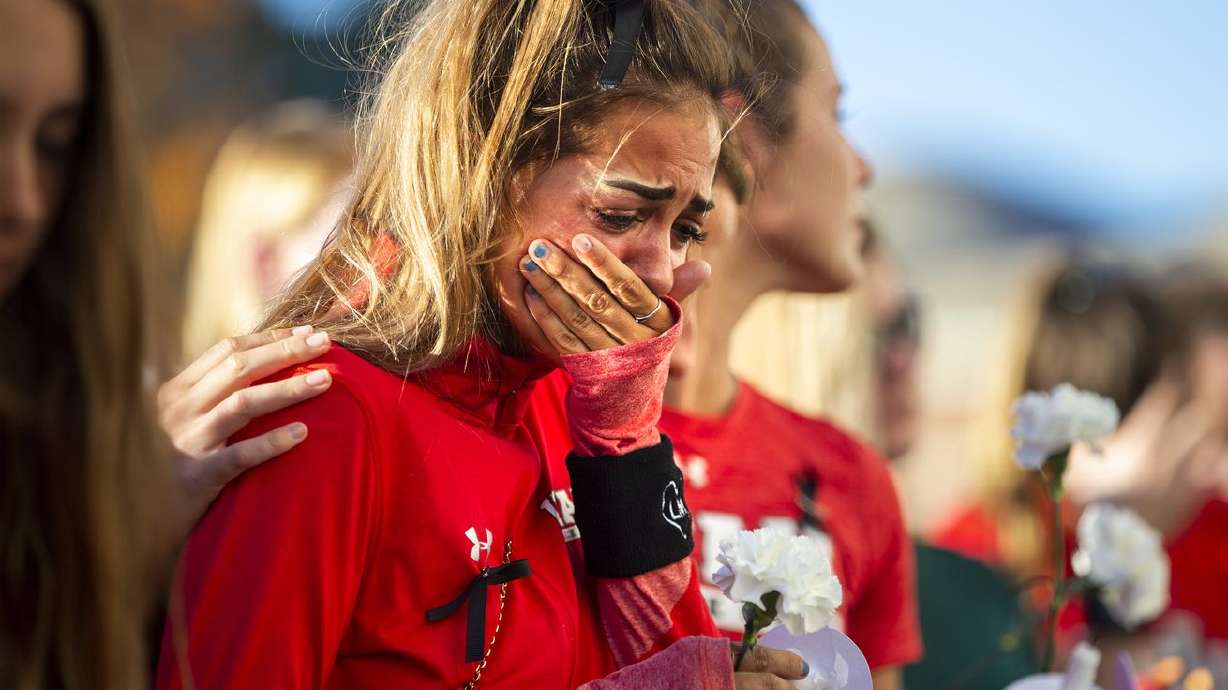Estimated read time: 4-5 minutes
This archived news story is available only for your personal, non-commercial use. Information in the story may be outdated or superseded by additional information. Reading or replaying the story in its archived form does not constitute a republication of the story.
SALT LAKE CITY — Gov. Spencer Cox signed three bills dealing with policing in Utah, including changes to the state's revenge porn law that arose from the investigation of slain University of Utah student Lauren McCluskey when an officer shared graphic images of her with others.
They were among a batch of 57 bills the governor gave final approval to on Thursday.
The Legislature approved a scaled-back version of HB147 that was inspired by issues surrounding the McCluskey investigation. The new law will specifically outlaw the sharing of intimate images without consent outside legitimate law enforcement investigative purposes, regardless of whether a victim is alive to suffer emotional distress.
More than two years ago, McCluskey gave intimate photos to a University of Utah police officer to aid in the investigation of her eventual killer, Melvin Shawn Rowland, 37, who was blackmailing her with the photos. A review conducted by the Utah Department of Public Safety found that the officer accessed them multiple times and showed them to others on his phone on at least four occasions.
Despite outcry over the police officer's actions, Utah laws provided no avenue to prosecute the officer because the revenge porn statute required victims to suffer "actual emotional distress" for charges to be filed, which couldn't occur because McCluskey was already dead by the time the officer shared the photos.
Two other bills — among many — brought forth to look at issues around police behavior following last year's national unrest in the wake of the death of George Floyd at the hands of Minneapolis police were also signed by Cox.

HB162 requires that 16 of the 40 hours of training police officers are required to complete each year to be focused on de-escalation tactics and working with individuals who are experiencing a mental health crisis.
He also agreed with HB22 to require the chief medical examiner to investigate deaths resulting directly from actions of a law enforcement officer. The bill also assigns a criminal charge for anyone who knowingly provides misinformation to the medical examiner or the medical examiner's office.
Cox has thus far signed 87 bills or resolutions out of 503 passed in the session that ended March 5. He has until March 25 to sign or veto legislation, or to allow it to go into effect without his signature.
Most new laws take effect May 5.
Related:
Other bills of note that he signed include:
• HB 170, which directs the Utah Division of Motor Vehicles to return to the practice of mailing reminders to people about the upcoming expiration of their vehicle registration. The agency stopped sending the reminders last fall as part of pandemic-related budget cuts, but concerns were raised as a number of Utahns forgot to renew their registrations throughout the fall and early winter.
• SB11, one of three tax-cut bills totaling nearly $100 million approved by lawmakers. The change will use $23.8 million to eliminate income taxes for Utahns on military retirement pay. Fiscal analysts estimate SB11 will reduce the tax burden of nearly 18,100 people by an average of $1,315 a year.
• Cox also signed SB153, which sets aside nearly $55 million to expand the dependent exemption that was lost in federal tax changes in 2017.
The governor has yet to act on HB86, which would use about $18.3 million to eliminate income tax on some Social Security income, targeting Utah senior citizens living on fixed incomes.
• HB67 closes a gap in state law that has rewarded certain defendants for committing new crimes, including two who had a role in the 2016 death of West Valley police officer Cody Brotherson.
The measure ensures a juvenile detention facility can continue to hold a defendant even after a conviction in the adult system. Jenny Brotherson, the mother of the officer killed, urged lawmakers to pass the measure, saying it would help keep the public safe and limit the chances that other families will have to endure the sadness and loss that hers has.
• SB155 ensures funding for the 988 crisis line, a national suicide prevention hotline that states are required by Congress to implement by 2022.
Correction: An earlier version incorrectly said the governor had not signed SB153, one of three tax-cut bills. He signed that bill Thursday.









